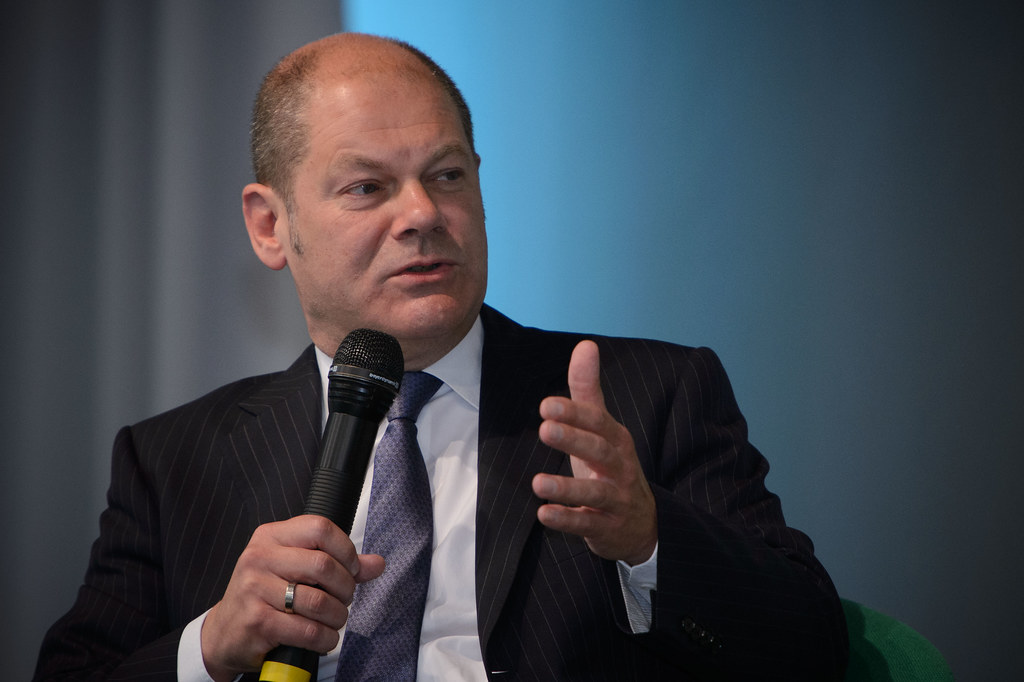Why Scholz is holding back on the energy embargo on Russia

Scholz ruled out the possibility that Germany would proceed with an embargo on energy imports from Russia. All the details. Pierluigi Mennitti's article from Berlin
To throw water on the fire on the debate on the energy embargo on Russia, which became hot over the German weekend, came the chancellor himself, returning from the top with the heads of state and government of the West and of NATO. Olaf Scholz has once again ruled out the possibility of Germany (and Europe) applying an embargo on energy imports from Russia. But on another very sensitive side for German public opinion, that of armaments, he confirmed that Germany is considering the hypothesis of adopting an anti-missile defense system such as Israel's Iron Dome: "I can say that this certainly does part of the things we're discussing, and with good reason ”.
SCHOLZ: WE CANNOT ALLOW THE ENERGY BOYCOTT
Therefore, no energy boycott, not even for a single month, as Ukrainian President Wolodymyr Zelenski recently asked. Responsible politicians must have the courage to tell the truth, said Scholz when interviewed on the main German TV talk show: "And the truth is that a boycott would trigger a huge economic crisis."
"We are talking about an incredible number of jobs", continued the Chancellor, "because if we were to give up imports from Russia overnight, we would have to pause the activity of entire industrial sectors". Dependence on Moscow has suddenly become Germany's biggest security problem, but it can only be resolved gradually, albeit with some haste. And so Scholz confirmed that coal and oil imports will be replaced in a very short time, by the end of the year, even at the cost of keeping German coal-fired plants in operation and postponing the farewell to this fossil energy that his government he wanted to move forward to 2030. On the other hand, it will be quite easy for oil to rely on other exporting countries.
The problem remains gas, and Germany depends on Russia for 55%. "It is our problem, but a European one in general", the Chancellor resumed, "Italy also depends to a large extent on Russian imports and many Eastern European states have their energy networks connected with Russia and not with the West," as a political legacy of past decades ".
IT TAKES TIME TO BE INDEPENDENT FROM RUSSIAN GAS
The steps towards energy independence from Moscow must therefore be swift but considered. Thus Germany is asking for the gradualness in this area that in the past it was reluctant to grant to some European partners, for example, on debt issues. But Scholz promises he is already doing his "homework" on the subject. Speaking of coal and oil, the Chancellor cited ongoing talks with Norway for new supplies and for the development of joint projects on renewables, and above all the acceleration for the construction of the infrastructures necessary to divert a part of it to liquefied natural gas. of imports.
This is the context of the recent trip to Qatar by the owner of the Economy Robert Habeck, during which the green minister announced a wide-ranging agreement (the contents of which, according to the press, are still vague at the moment), and the green light for the construction of two regasification plants in the North Sea ports of Brunsbüttel and Wilhelmshaven.
The newspapers write that the two terminals will still be able to come into operation in the best of cases only from 2024, the government believes – comforted by the technicians – that everything can go to port sooner, within a year. We will see.
THE DEBATE STAYS ON
But no matter how short the time it takes to disengage from Moscow, the internal debate on the embargo is not destined to subside with the chancellor's statements. For economist Lukasz Rachel, former Senior Economist at the Bank of England and professor at the Ucl Department of Economics, interviewed by the Frankfurter Allgemeine Zeitung, "it is absolutely ridiculous" to say how the German government does that Germany will no longer need Russian gas. from 2024: “In this way, Putin is told that he will not receive any money in three years, which will certainly make him even more unpredictable and risky in the short term. And at the same time 700 million euros are transferred to him every day to finance his madness ”.
Even the director of the Ifo, Clemens Fuest, shakes his head: if you want to give up Russian gas, you have to have the courage to do it now, not from 2024, when you hope that the war will be over.
FRANKFURTER ALLGEMEINE ZEITUNG PUSHES THE GOVERNMENT TO EMBARGO
The Frankfurt newspaper insists. The crucial question is whether Germany can afford an energy embargo economically and the answer economists give with their simulations is that there is a high probability that the German economy will be hit by a recession, but that serious upheaval is unlikely. : "Doing nothing can be the wrong strategy, especially in uncertain times, and the traditional German strategy towards Russia of sticking your head in the sand can have a devastating effect in the long term." Veronika Grimm, an energy economist at the Laboratory for Experimental Research in Nuremberg, argues that "in the medium term we will still have to accept a loss of prosperity if we are to establish ourselves independently of Russia." And the Faz comments: "The time has come for the German government to change its negative attitude towards an energy embargo".
This is a machine translation from Italian language of a post published on Start Magazine at the URL https://www.startmag.it/energia/scholz-germania-embargo-energetico-russia/ on Mon, 28 Mar 2022 06:57:05 +0000.
